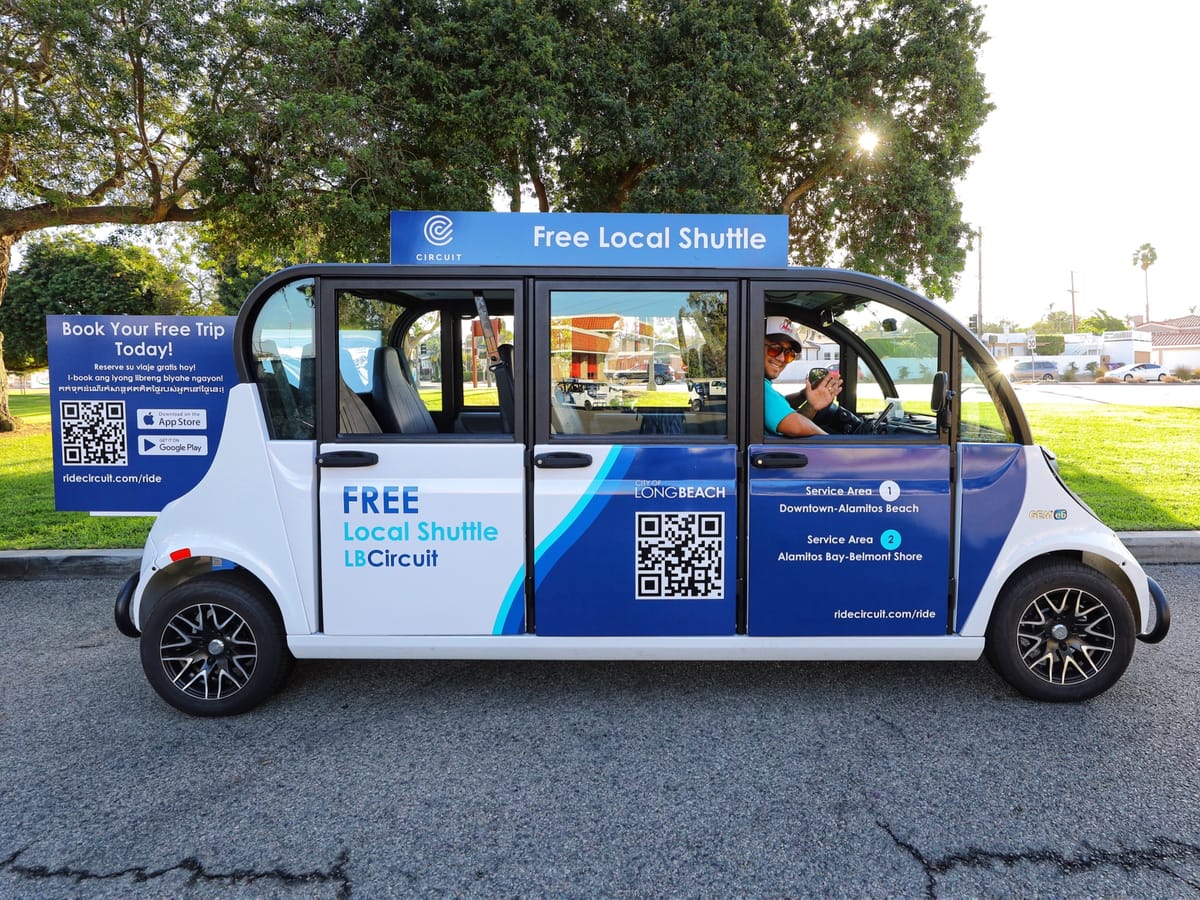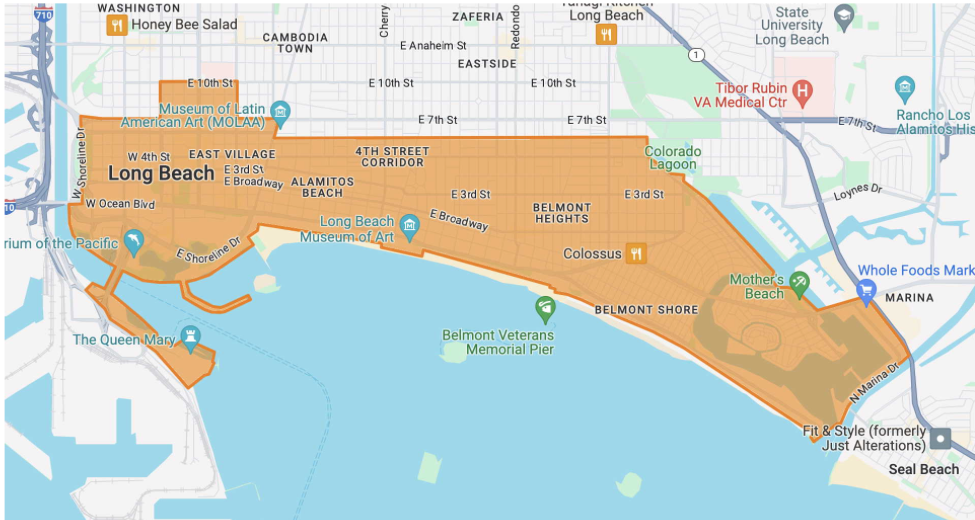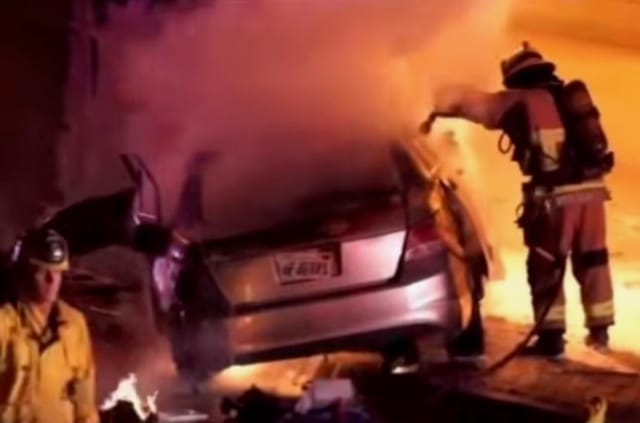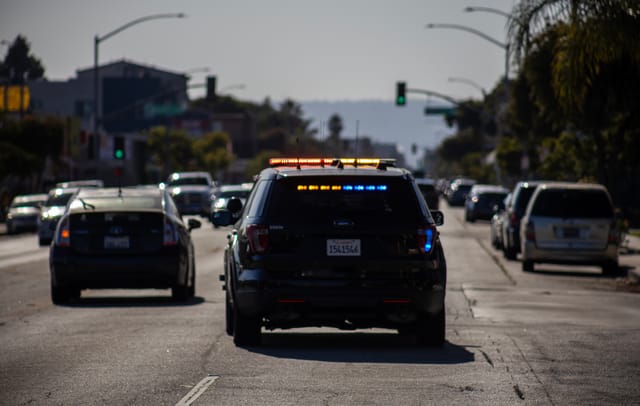Long Beach City Council could expand micro-transit program, connect service areas
The program currently has two service areas but a new contract could connect them and more than double the number of shuttles in operation to 14.

More shuttles and a seamless ride between Downtown and 2nd and PCH could be on the way as the City Council readies to approve an expansion of Long Beach’s micro-transit program this fall.
Long Beach City Council members could vote on a $6.4 million extension of the program at its Sept. 10 meeting that would more than double the size of the micro-transit fleet from six to 14 and finally connect the existing two service areas in Downtown and the Belmont Shore and Alamitos Bay Landing areas.
Previously, riders could hail a free ride using a smartphone app but could not travel between the two service areas. With the council’s pending approval of the new contract Tuesday, riders would be able to catch a ride from Ballast Point all the way to Shoreline Village.
A memo sent to the City Council ahead of the vote notes that the popularity of the service has grown from its initial month of service when just 230 people used the service to June 2024 when over 5,200 people hailed rides on the city’s micro-transit shuttles.
The program was approved in September 2022 by the City Council as a way to reduce car trips, alleviate parking issues and draw more visitors to the Downtown shoreline as well as Belmont Shore and Alamitos Bay.
The new contract would also provide service to the Queen Mary and expand the service area in Downtown as far north as 10th Street and offer service to St. Mary Medical Center, according to a city report. The bigger footprint could allow for more senior care facilities to utilize the shuttle service in the future.

Expanding the fleet to 14 could also allow for better response times for people in wheelchairs, according to the report. The system currently uses two ADA-accessible shuttles on standby until they’re requested but the proposed new approach would have two wheelchair-accessible vehicles in constant operation that will provide rides to all customers until a person in a wheelchair requests a ride.
Funding for the one-year extension is expected to come from Los Angeles Metro funds the city receives for transportation projects as well as the city’s construction and demolition recycling program revenue, which is intended to be spent on environmental projects.
An audit performed earlier this year found that there was over $9 million in that fund that could be used for park and environmental improvement projects.

We need your support.
Subcribe to the Watchdog today.
The Long Beach Watchdog is owned by journalists, and paid for by readers like you. If independent, local reporting like the story you just read is important to you, support our work by becoming a subscriber.





